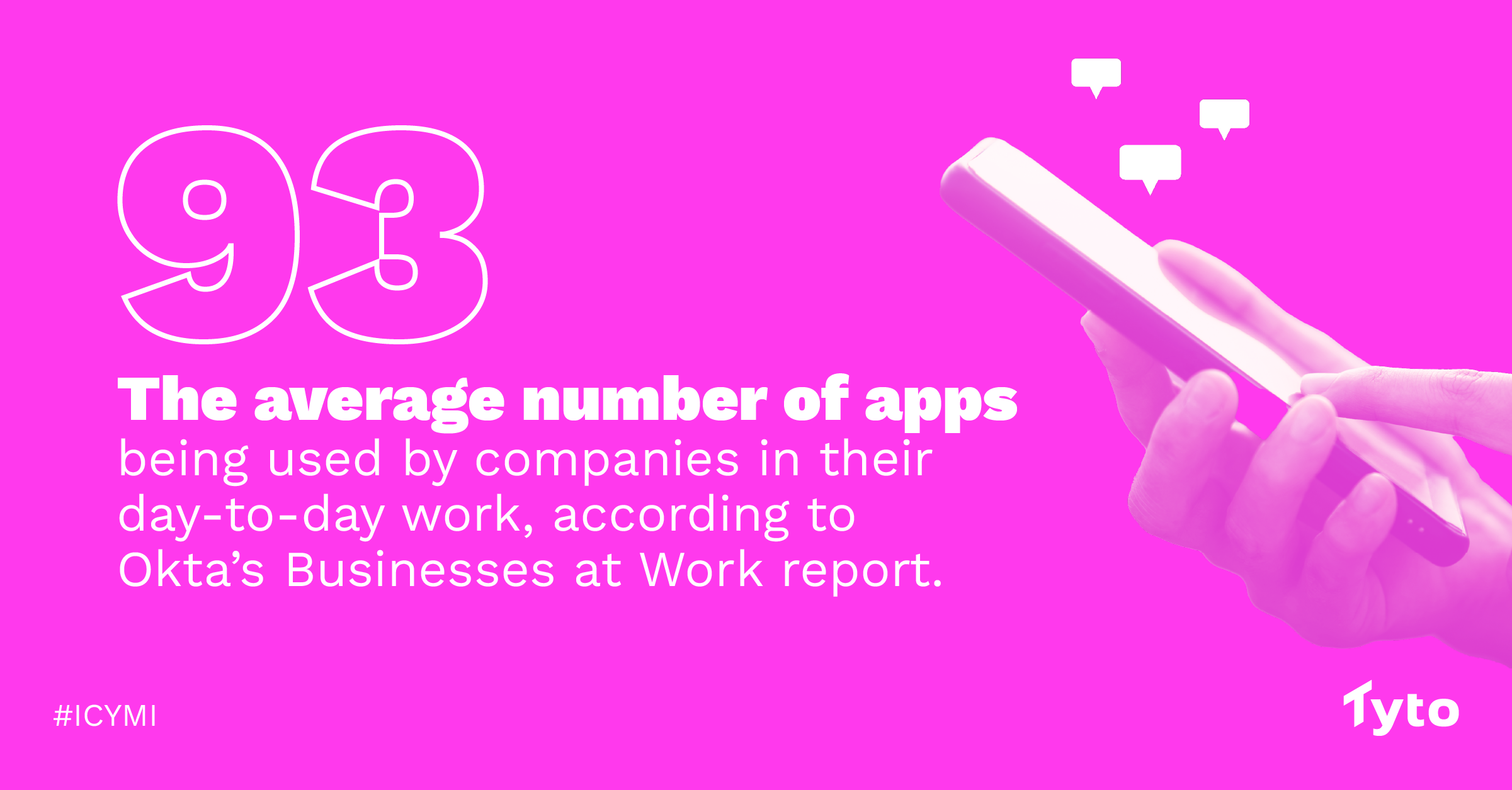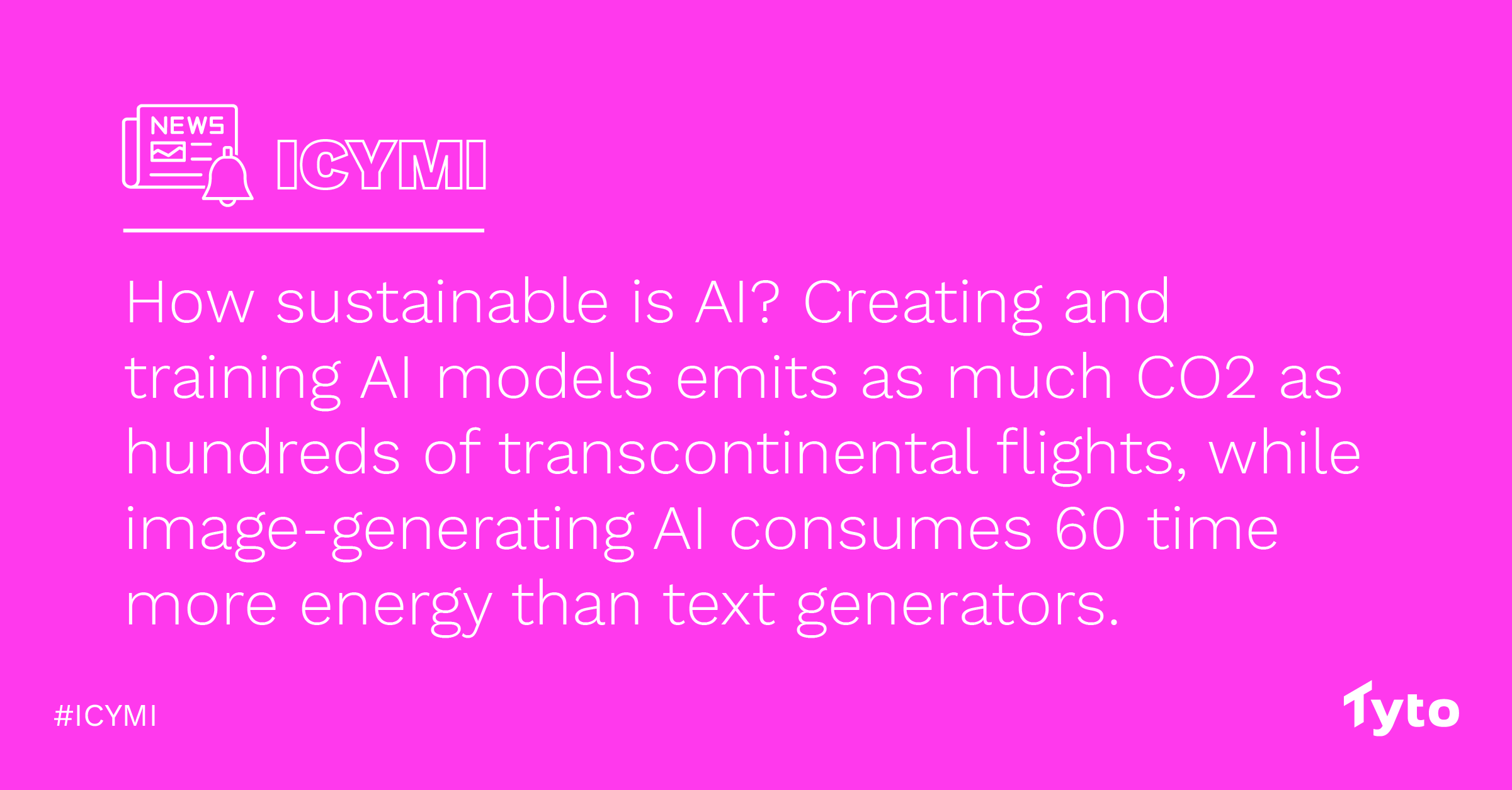ICYMI: Sustainability in the Age of AI
Welcome to ICYMI – a weekly snapshot of European news stories that have given me pause for thought. ICYMI is a chance for you to go beyond the front-page headlines and find out what other stories may be worthy of your attention.
Sustainability is a major topic in 2024. Most people associate sustainability with the environment, but this issue goes beyond that. How do we sustain the integrity of our elections? How do we sustain our health and wellbeing? How do we ensure our businesses are sustainable? And what role can technology play in sustainability?
A few stories from the past week highlighted the varying aspects of sustainability. The first concerns artificial intelligence and its impact on the environment.
According to a report in Le Figaro, the creation and training of AI emits a significant amount of CO2, equivalent to hundreds of transcontinental flights or several cars over their lifespan. AI models that generate images consume 60 times more energy than ones that generate text: the example given in the article claims that generating text for 1,000 requests is equivalent to 16% of a smartphone recharge, but asking an AI to generate 1,000 images is equivalent to simultaneously and fully recharging 950 smartphones.
The report raises crucial environmental concerns associated with the increasing use of AI and highlights the importance of considering the carbon footprint of developing an AI. From a PR perspective, any clients who may want to talk about cutting their emissions and becoming more environmentally friendly, while also adopting or pursuing AI initiatives, will need to consider how to reconcile these potentially opposing objectives.

How many apps is too many?
In a related story, the American tech company Okta published a report on what apps we’re using the most in our offices, based on a survey of eight countries including France, Germany, The Netherlands and the UK.
According to the report, companies are using 93 apps on average. Larger companies (those with more than 2,000 employees) have a much high average at 231, while smaller companies only use 69. Surprisingly, tech startups use just 47 apps on average.
The report found app usage differs radically from country to country. Companies in The Netherlands use the most apps, with an average of 108. The fastest growing app in the UK is password manager 1Password, while in The Netherlands it is Google Workspace.
It’s worth considering the sustainability aspect of using so many apps. How many are essential, and how many are costly and redundant? The story also underlines just how essential digital skills are in today’s workplace to enable people to work effectively.

Combatting misinformation in the Age of AI
As we discussed previously, 2024 is a big year for politics. Given the power of AI, the risks from AI-generated fake news and misinformation are greater than ever, so it is worth paying attention to news that the EU is set to impose new election safeguards on tech companies.
According to the FT, the EU is preparing new guidelines requiring social media platforms such as X and TikTok to combat election disinformation. Failing to prevent the spread of misinformation could lead to fines of up to 6% of global turnover.
In such an important election year, protecting the integrity and credibility of elections is likely to be a major topic in the media. PRs should consider how their tech clients can help (or hinder) the fight against misinformation.

Cybersecurity in the healthcare sector
How safe is your medical data? According to a recent story in Heise, it may not be well protected. Germany’s Federal Office for Information Security, BSI, conducted two studies into the IT security of the country’s medical practices. The first, a survey of 1,600 practices, found that only one third of respondents had fully implemented protective measures, while one in ten reported that had already been a victim of an IT security incident.
A second study looked at 16 practices in detail, and the BSI identified serious security flaws, including inadequate protection against malware, poor patch management and lack of backups. None of the practices used disk encryption to protect sensitive patient data.
Given how the threat of cyberattacks continues to rise, the story is sobering. Clearly more needs to be done to improve cybersecurity in our vital – and vulnerable – sectors.



